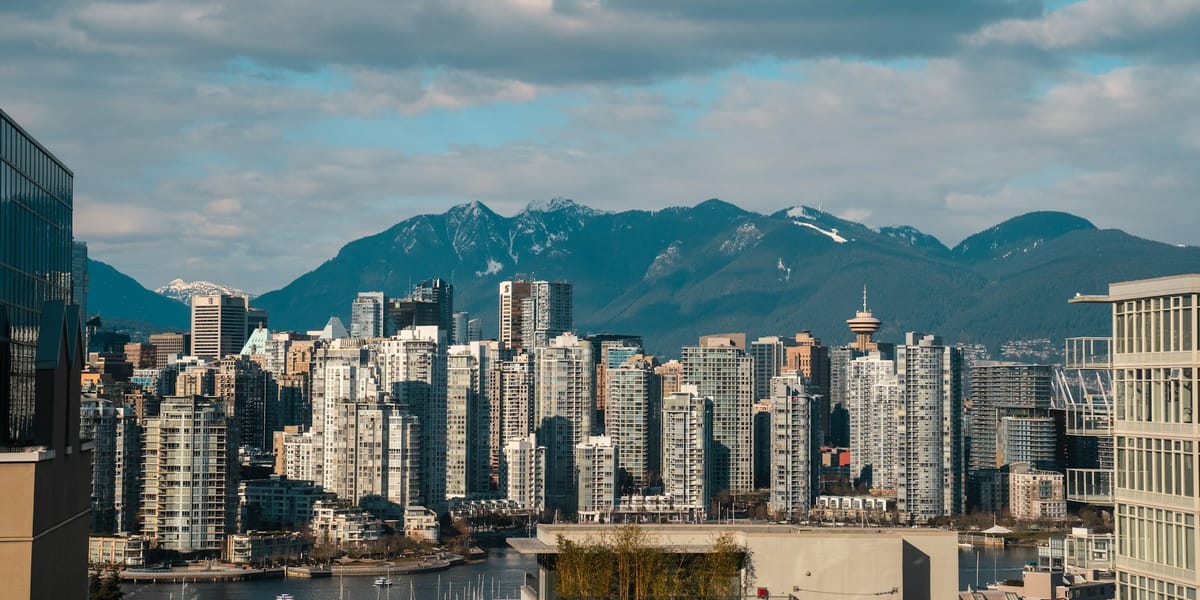How to Find a Therapist in British Columbia: Complete 2025 Guide
Find the right therapist in BC with our comprehensive guide covering costs, MSP coverage, professional credentials, and practical tips for accessing mental health care across British Columbia.

Finding the right therapist in British Columbia can feel overwhelming when you're already dealing with mental health challenges. With over 5.2 million residents spread across urban centres like Vancouver and Victoria, plus remote communities throughout the province, accessing quality mental health care requires understanding both the public and private systems available to you.
Whether you're seeking support for anxiety, depression, relationship issues, or any other mental health concern, this comprehensive guide will walk you through the essential steps to find a qualified therapist who meets your specific needs and circumstances.
Understanding BC's Mental Health Care Landscape
British Columbia operates a complex mental health system that combines publicly funded services through BC Mental Health and Substance Use Services with a robust private practice sector. This dual system means you have multiple pathways to accessing care, though each comes with different costs and eligibility requirements.
The province's geography creates unique challenges for mental health access. While urban areas like Vancouver and Victoria offer abundant options, residents in northern communities or smaller towns may face longer wait times and fewer local specialists.
Key Statistic: According to the Canadian Mental Health Association BC Division, approximately 1 in 5 British Columbians will experience a mental health problem in any given year, highlighting the critical importance of accessible mental health services.
Types of Mental Health Professionals in BC
Understanding the different types of mental health professionals can help you choose the right fit for your needs and budget.
Registered Psychologists
Psychologists in BC must hold doctoral degrees and complete supervised practice requirements under the College of Psychologists of British Columbia. They can provide psychological assessments, diagnosis, and evidence-based treatments for complex mental health conditions.
Best suited for: Psychological testing, complex mental health conditions, specialized treatments like EMDR or cognitive behavioural therapy (CBT).
Average cost: $150-$250 per session
Insurance coverage: Often covered by extended health benefits
Registered Clinical Counsellors (RCC)
RCCs complete master's level training and supervised practice through the BC Association of Clinical Counsellors. They provide counselling and psychotherapy for various mental health concerns using evidence-based approaches.
Best suited for: General counselling, relationship therapy, anxiety and depression support, life transitions.
Average cost: $100-$180 per session
Insurance coverage: Frequently covered by extended health plans
Registered Social Workers (RSW)
Regulated by the BC College of Social Workers, social workers focus on helping individuals navigate social, emotional, and practical challenges within their environmental context.
Best suited for: Family therapy, addiction counselling, trauma-informed care, connecting to community resources.
Average cost: $90-$150 per session
Insurance coverage: Often included in benefit packages
Marriage and Family Therapists
These specialists focus on relationship and family dynamics, often holding additional certifications in approaches like Emotionally Focused Therapy (EFT) through organisations like the Canadian Association for Marriage and Family Therapy.
Best suited for: Couples counselling, family therapy, relationship issues.
Average cost: $120-$200 per session
Coverage and Payment Options in BC
Medical Services Plan (MSP) Coverage
BC's Medical Services Plan covers psychiatrist visits and some psychological services when medically necessary and referred by a physician. However, most counselling and psychotherapy from clinical counsellors and social workers falls outside MSP coverage.
For publicly funded mental health services, contact your local health authority. Fraser Health, Vancouver Coastal Health, Interior Health, Island Health, and Northern Health each operate community mental health programs with varying eligibility criteria.
Extended Health Benefits
Many BC employers offer extended health benefits including mental health coverage. These plans typically cover registered psychologists, clinical counsellors, and social workers up to annual maximums ranging from $500 to $3,000 per year.
Check your benefits package for:
- Covered professional designations
- Annual maximum amounts
- Whether direct billing is available
- Referral requirements
Employee Assistance Programs (EAP)
Many BC employers provide EAP services offering short-term counselling at no cost to employees and their families. These programs typically provide 3-8 sessions per issue and can serve as a starting point while you search for longer-term therapy options.
Indigenous Health Benefits
First Nations and Inuit Health Benefits provide mental health coverage for eligible Indigenous individuals through Health Canada's Non-Insured Health Benefits program. This includes coverage for psychological services and traditional healing approaches.
Step-by-Step Guide to Finding a Therapist
Step 1: Assess Your Needs and Preferences
Before beginning your search, consider what type of support you're seeking. Are you dealing with specific symptoms like panic attacks or persistent low mood? Do you need help with relationship conflicts or workplace stress? Understanding your primary concerns helps narrow your search to therapists with relevant expertise.
Consider practical factors too:
- Preferred session format (in-person or virtual)
- Schedule flexibility needs
- Budget constraints
- Language preferences
- Cultural considerations
Step 2: Explore Your Coverage Options
Start by reviewing your health benefits to understand what's covered. Contact your insurance provider or benefits administrator to clarify:
- Which mental health professionals are covered
- Your annual maximum coverage
- Whether pre-authorization is required
- If you need referrals from your family doctor
If you don't have extended benefits, consider whether you qualify for sliding scale fees or community counselling programs with reduced rates.
Step 3: Search Professional Directories
Professional associations maintain searchable directories of licensed practitioners:
For Psychologists: The College of Psychologists of British Columbia directory allows you to search by location, specialisation, and languages spoken.
For Clinical Counsellors: The BC Association of Clinical Counsellors member search includes filters for therapeutic approaches and areas of focus.
For Social Workers: The BC College of Social Workers registry provides verification of current licensing status.
Step 4: Research Potential Therapists
Once you've identified potential therapists, research their backgrounds and approaches. Most practitioners have websites or professional profiles detailing their:
- Educational credentials and training
- Therapeutic approaches and specialisations
- Experience with your specific concerns
- Cultural competencies
Look for therapists who demonstrate ongoing professional development through continuing education and specialized training relevant to your needs.
Step 5: Make Initial Contact
Many therapists offer brief phone consultations to discuss your needs and determine mutual fit. Use this opportunity to ask about:
- Their experience with your specific concerns
- Therapeutic approach and typical treatment length
- Practical matters like scheduling, fees, and cancellation policies
- Whether they have current availability
Trust your instincts during these conversations. A good therapeutic relationship requires mutual respect and comfort.
Geographic Considerations Across BC
Lower Mainland and Victoria
Vancouver, Burnaby, Richmond, Surrey, and Victoria offer the largest selection of mental health professionals. You'll find specialists for virtually every type of therapy, though high demand can mean longer wait times for popular practitioners.
These urban areas also have the most extensive community mental health resources, including specialized programs for youth, seniors, and specific populations.
Smaller Cities and Towns
Communities like Kelowna, Kamloops, Prince George, and Nanaimo have growing mental health service options. While you may have fewer choices than in major centres, many qualified professionals serve these areas.
Consider therapists who offer a mix of in-person and virtual sessions, which can provide more scheduling flexibility and consistent care during travel or weather disruptions.
Rural and Remote Areas
Northern BC and smaller communities may have limited local mental health services. Telehealth options have become increasingly important for ensuring rural residents can access quality therapy.
Some therapists specifically serve rural communities through technology platforms, while others travel to provide periodic in-person services combined with virtual follow-up sessions.
Special Considerations for BC Residents
Seasonal Considerations
BC's variable climate and shorter winter days contribute to seasonal mood changes for many residents. If you experience seasonal affective disorder (SAD) or winter depression, look for therapists experienced in light therapy and seasonal treatment approaches.
Workplace Mental Health
WorkSafeBC covers mental health treatment for work-related psychological injuries. If your mental health concerns stem from workplace incidents, harassment, or traumatic events at work, you may be eligible for coverage through workers' compensation.
Youth-Specific Resources
BC has developed specialized youth mental health services, including Foundry centres that provide integrated health and social services for young people aged 12-24. These centres offer mental health support, substance use services, peer support, and primary health care under one roof.
Cultural and Language Considerations
BC's diverse population requires culturally responsive mental health care. Many therapists specialize in working with specific cultural communities or offer services in languages other than English.
For Indigenous residents, consider therapists who integrate traditional healing approaches with contemporary therapy methods. The First Nations Health Authority provides resources for culturally safe mental health services.
French-speaking residents can access services through Réseau-femmes Colombie-Britannique and other francophone organizations that maintain directories of French-speaking mental health professionals.
Making the Most of Your First Session
Your initial therapy session typically involves gathering background information, discussing your goals, and beginning to establish the therapeutic relationship. Come prepared with:
- A brief overview of your current concerns
- Relevant medical history or medications
- Previous therapy experiences (if any)
- Questions about the therapist's approach
- Your goals for therapy
Most therapists will have you complete intake forms before your first session. Arriving a few minutes early allows time to complete any remaining paperwork and settle in before your appointment begins.
Red Flags to Watch For
Be cautious of practitioners who:
- Cannot provide proof of current licensing with their regulatory body
- Guarantee specific outcomes or promise "quick fixes"
- Pressure you into long-term commitments or expensive packages
- Make you feel judged, dismissed, or uncomfortable
- Seem unfamiliar with BC's mental health resources and referral options
- Violate professional boundaries or dual relationships
Trust your instincts. A skilled therapist will help you feel heard, respected, and hopeful about the therapeutic process.
Professional Insight: "The therapeutic relationship is the foundation of effective treatment. If you don't feel comfortable with your therapist after a few sessions, it's perfectly appropriate to seek a better fit elsewhere." - Dr. Sarah Chen, Registered Psychologist, Vancouver
Frequently Asked Questions
How long does it typically take to find a therapist in BC?
The timeline varies significantly based on location and specific needs. In urban areas like Vancouver or Victoria, you might secure appointments within 2-4 weeks. Rural areas or specialized services may have longer wait times, sometimes 6-8 weeks or more. Starting your search early and considering multiple options, including telehealth, can help reduce waiting periods.
Can I access therapy without a doctor's referral in BC?
Yes, you can access most private mental health services without a referral. However, if you want MSP coverage for psychiatrist visits or access to certain public mental health programs, a physician's referral is typically required. Your family doctor can also help coordinate care and provide valuable context for your mental health treatment.
What should I do if I can't afford private therapy?
Several options exist for lower-cost mental health support in BC. Many community organizations offer sliding scale counselling based on income. University training clinics provide supervised therapy at reduced rates. Some therapists reserve spots for clients with financial constraints. Additionally, support groups and peer counselling programs can provide valuable support while you're waiting for individual therapy.
How do I know if a therapist is right for me?
A good therapeutic fit involves feeling heard, respected, and comfortable discussing difficult topics. You should sense that your therapist understands your concerns and has relevant experience. While therapy can be challenging, you should generally feel hopeful about the process and notice some positive changes within the first few sessions. If you don't feel the relationship is working after giving it a fair chance (usually 3-4 sessions), it's appropriate to seek a different therapist.
Are online therapy sessions as effective as in-person sessions?
Research demonstrates that teletherapy can be just as effective as in-person sessions for many mental health concerns, including anxiety, depression, and relationship issues. Online sessions have proven particularly valuable for BC residents in remote areas or those with mobility challenges. However, some situations may benefit more from in-person contact, and many therapists offer flexible combinations of both formats.
Finding Support That Works for You
Taking the step to find a therapist represents an important investment in your mental health and overall well-being. BC offers numerous pathways to accessing quality mental health care, whether through public services, private practice, or community organizations.
Remember that finding the right therapeutic match may take time, and it's perfectly normal to meet with several professionals before making your choice. The effort you put into finding the right fit will pay dividends in your therapeutic progress and personal growth.
If you're ready to begin your search for a qualified therapist in British Columbia, Theralist connects you with licensed mental health professionals across the province. Our platform features verified therapists who understand the unique aspects of Canadian mental health care and are committed to providing culturally responsive, evidence-based treatment. Search by location, specialisation, and insurance acceptance to find a therapist who meets your specific needs and preferences.
Sources:
- BC Mental Health and Substance Use Services
- College of Psychologists of British Columbia
- BC Association of Clinical Counsellors
- BC College of Social Workers
- Canadian Mental Health Association BC Division
- Statistics Canada, Mental Health Survey 2023
Links:
This article provides general information about finding mental health services in British Columbia. It is not intended to replace professional medical advice, diagnosis, or treatment. Always consult with qualified healthcare providers for personalized guidance regarding your mental health needs.





